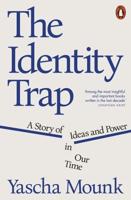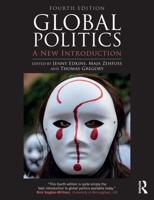Publisher's Synopsis
Europe is struggling. Its challenges include weak economic growth, populism, geopolitical tensions, Brexit, the EU's legitimacy crisis, and much more. Some of the dynamics at work may encourage further integration, but others are undermining it.
This volume of Research in Political Sociology seeks to adopt a 'longer' view to make sense of Europe's current 'malaise'. Written just before the COVID-19 pandemic, it asks vital and long-term questions about the EU. Are the current challenges unprecedented or do they have roots in, or connections to, past events and developments? Is there a 'big' picture which we should keep in mind? Are there bright spots, and what do they suggest about Europe's present and future?
To engage in such questions, leading scholars draw from historical and comparative sociology, as well as comparative politics. They offer analyses that see the EU as an instance of state formation. They grapple with the question of identity and institutions, exploring in that context the extent and limit of citizens' support for more Europeanization. Taken together, they put forward exciting, far-reaching, and illuminating perspectives of enduring relevance as Europe moves toward an uncertain future.










